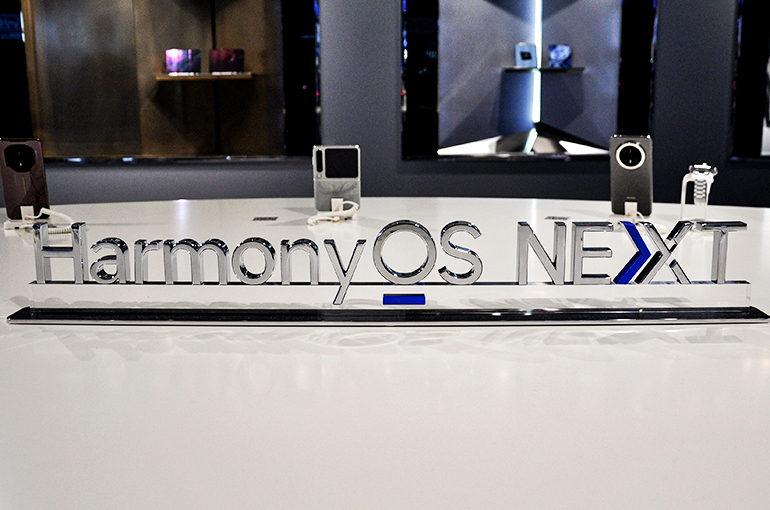 Devices Running on Huawei's HarmonyOS 5 Top 20 Million
Devices Running on Huawei's HarmonyOS 5 Top 20 Million(Yicai) Sept. 30 -- The number of devices running on Huawei Technologies' proprietary operating system HarmonyOS 5 has doubled over the past two months to more than 20 million, according to Executive Director Richard Yu.
It took 10 months for HarmonyOS 5 to reach 10 million devices, Yu, who also chairs the Chinese tech giant’s consumer business group, said on social media yesterday.
In addition, the number of apps and meta-services available within the HarmonyOS 5 ecosystem has exceeded 30,000, according to the latest data released by the company. More than 9,000 apps have been deeply involved in the joint development of over 70 system-level innovative features.
"Being fully based on a self-developed kernel, HarmonyOS 5 has all apps redeveloped and migrated from scratch," Yu noted. "This transformation has truly freed HarmonyOS from reliance on the Android ecosystem, achieving autonomy and controllability at the OS level.”
Huawei’s split from the Android ecosystem began in 2019, when the US government put the Shenzhen-based company on a trade blacklist, and was completed with the launch of HarmonyOS 5 last October.
"With the improvement of the incentive system, the HarmonyOS ecosystem will likely be on par with those of Android and iOS by the end of this year,” You noted.
Since work began on HarmonyOS six years ago, Huawei has had more than 10,000 researchers and developers on the project each year, invested tens of billions of Chinese yuan (billions of US dollars) in the system, and has written about 130 million lines of code for it, Yu said.
Sign-ups for the HarmonyOS 6 developer beta have officially opened, with Huawei investing nearly CNY10 billion (USD1.4 billion) to support developer migration. In addition, the company recently launched the Tiangong Plan, pledging CNY1 billion (USD140 million) to boost innovation in artificial intelligence.
Yu was appointed director of Huawei’s Investment Review Board yesterday, according to an internal company letter signed by Ren Zhengfei, the firm’s founder and chief executive, and seen by Yicai. The board sets Huawei’s research and development budget, approves major projects, and directs resources to ensure they are deployed efficiently toward strategic goals.
In HarmonyOS 6's disclosed technical details, the software, hardware, chip, and cloud service capabilities are all integrated into the new system architecture, with AI directly embedded into its core foundation.
Trillions of smart hardware and machines will potentially run on HarmonyOS in the future, including devices used in mining and healthcare, and even satellites, Yu noted. Open-sourcing the system will bring significant social and economic benefits, he said, adding that Huawei also has long-term plans to promote it worldwide.
"HarmonyOS 6 will provide users with a more robust connected and intelligent experience," Yu said.
Editors: Tang Shihua, Martin Kadiev